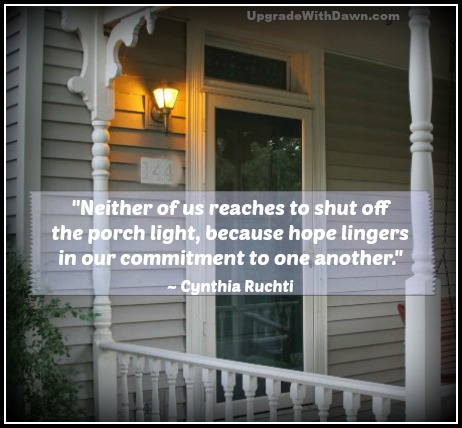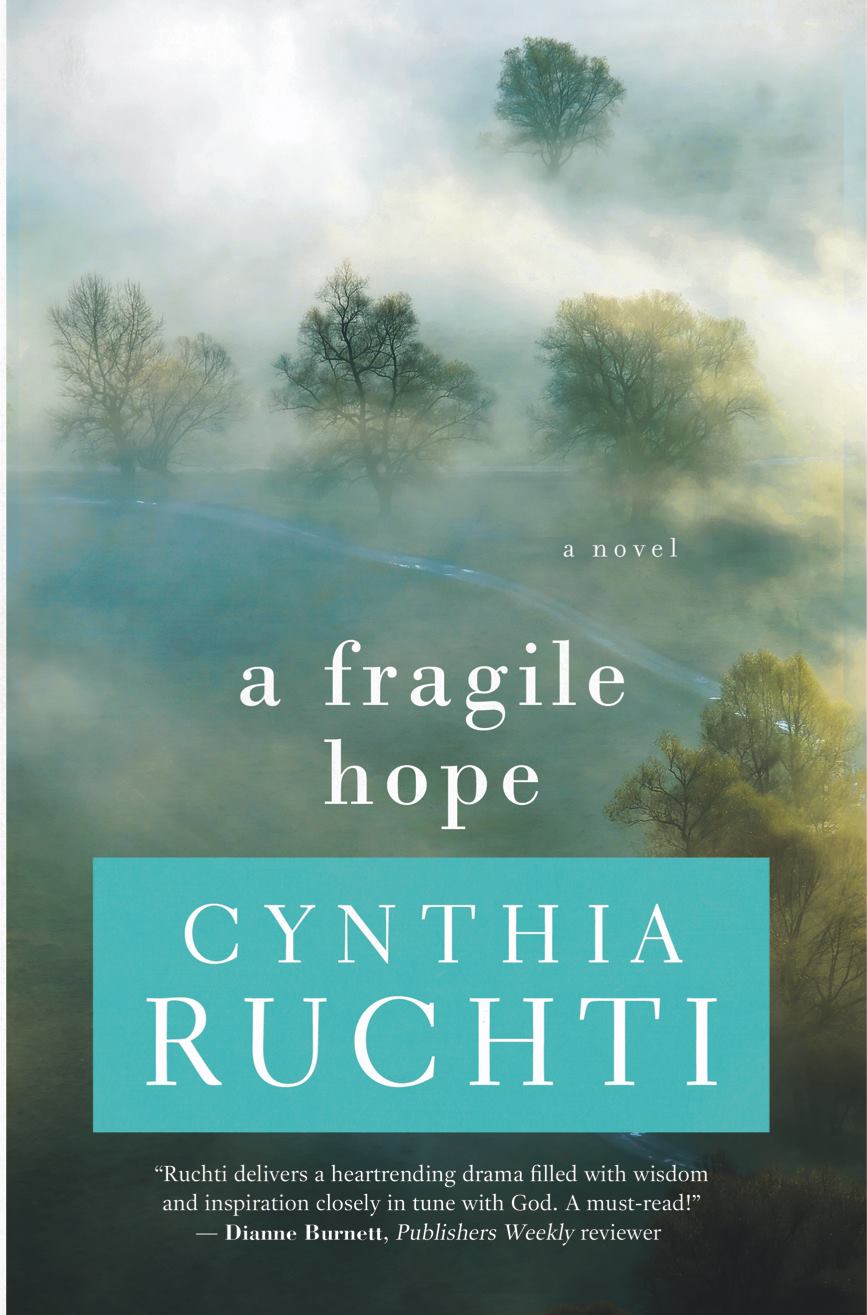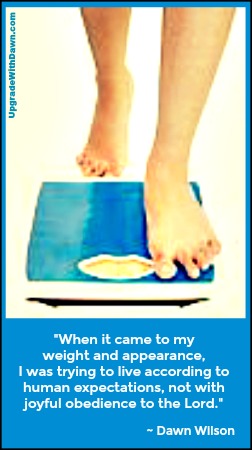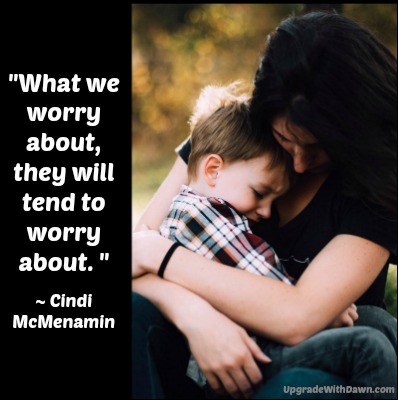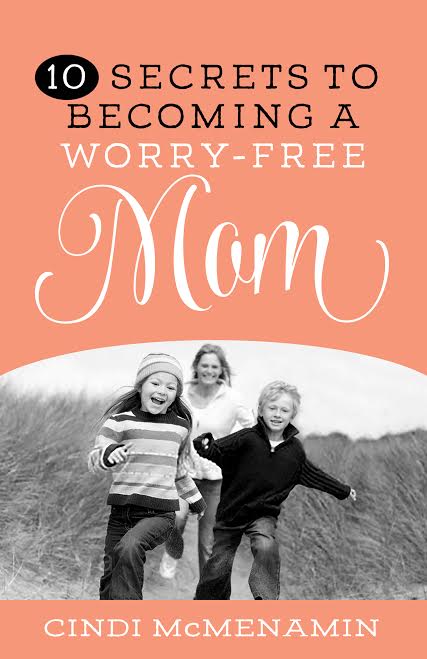Our Stuff vs. God's 'Stuff'
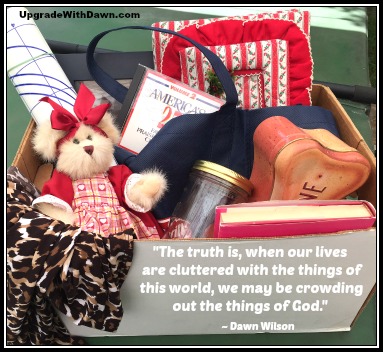 As I entered Pam Farrel's two-day post about downsizing (Part 1; Part 2), I (Dawn) searched my own heart.
As I entered Pam Farrel's two-day post about downsizing (Part 1; Part 2), I (Dawn) searched my own heart.
"Lord," I said, "Pam wrote, 'You don't own your things; your things own you.' I get that. Does my stuff have me?
"And beyond that, Lord, does YOUR stuff have me?"
It was a strange question that filled my heart that morning, but one I had to answer honestly.
I had already been dealing with the idolatry of things. All the possessions in my home that consumed my time and attention.
The things I bought that were frivilous. Trinkets.
Things that cluttered my home and inhabited my heart.
The truth is, when our lives are cluttered with the things of this world, we may be crowding out the things of God.
So we start weeding out, downsizing, simplifying our homes, our closets, our storage spaces. And that's all good.
It's good to simplify our lives too. It creates freedom. Breathing room.
But I've noticed, when we clear spaces in our homes and heart, something else usually rushes in to fill that space.
I got rid of one "collection" in my home only to replace it with another one. It still wasn't the best use of my financial flow. And soon after I started dealing with my idolatry of food (gluttony), I found another idolatry rushed into the vacuum (pride of self-accomplishment).
The Lord doesn't just want things to be deleted from our lives; He wants to fill our lives with something better.
He wants to fill us with Himself.
I started asking the Lord, "What can I add to my life that will bring you more glory?"
I wanted my "stuff" to be used for God's glory and to bless others as Pam suggested. And I wanted the Lord to fill my home and heart with more of Himself too. I wanted to be a vessel of honor, for His use.
It's not about despising our "stuff"—despising the things of the world. It's about finding our highest delight in the Creator of the world and in His Word, and bearing good fruit for Him (Psalm 1:1-3).
Focusing on God's "stuff" means focusing on the truth of His Word and responding to it in humility, obedience, and God-glorifying service.
That may mean changing our thoughts, especially any lies we believe. We muat be careful how we think, because our lives are shaped by the thoughts of our "heart" (Proverbs 4:23). We must fix our thoughts on those things that will build our lives and glorify the Lord (Philippians 4:8). We must be renewed in the spirit of our mind (Ephesians 4:23).
But most of all, it's following the replacement principle, the dynamic the Bible describes as "put off... put on."
Without the biblical replacement principle—found in Ephesians 4:22-24 and Philippians 3:12-14; 4:8—we may be simply replacing one bad habit with another bad habit, or one idolatry with another idolatry.
We must put off (get rid of) those things that fill our lives that do not please the Lord. We must confess our sins as the Holy Spirit illuminates our heart reveals them to us (Ephesians 1:15-18; 1 John 1:9). Our sins begin in our hearts and work their way outward, so we need to start with the heart.
It's not enough to recognize the fruit of sin; we need to get to the root and yank it out.
For example, overeating was not my root of sin; the gluttony was a result of idolatry in my heart—seeking satisfaction in food rather than the Lord. THAT was the root.
We are renewed in our spirit (sanctified) when we begin to appropriate and apply the Word (John 17:17) and REPLACE our sinful desires, thoughts and attitudes with biblical desires, thoughts and attitudes (1 Timothy 4:7; Romans 6:11-14, 16-19). We allow the Word to train us!
It's not usually an overnight process, but a transformation that happens over time as we yield to the Spirit of God (James 1:21-25).
In that transformation, we put off (eliminate) some things (our sinful stuff), and put on (embrace) other things (God's holy and honorable "stuff").
For example:
- We put off anger and put on self-control (Proverbs 29:22; Galatians 5:22-23).
- We put off bitterness and put on a tender heart of forgiveness (Hebrews 12:15; Ephesians 4:32).
- We put off boastful pride and put on honor and esteem for others (1 Corinthians 4:7; Philippians 2:3).
- We put off complaining and put on gratefulness (Philippians 2:14-16; Galatians 5:22-23).
- (If you want to study that out, here is a helpful "Put off, Put on" list with scripture links.)
But the point is, once we identify our "stuff," we discover God's "stuff"—His absolute truth about our sin—and we embrace it and do whatever we can to make the truth of His Word an active part of our lives (reading, memorization, responding in obedience, etc.). In other words, we surrender our lives to His control.
So... as I am deleting the frivilous and foolishly time-consuming things in my home that clutter and rob me of freedom or joy, I am also asking the Lord to help me delete the things that do not please Him, and REPLACE them with things that delight His heart.
Is this your desire too? Where will you begin to deal with YOUR "stuff"? Where does seeking God's "stuff" begin?
Dawn Wilson, founder and President of Heart Choices Today, is a speaker and author, and the creator of three blogs: Heart Choices Today, LOL with God (with Pam Farrel), and Upgrade with Dawn. She is a contracted researcher/reviewer for Revive Our Hearts and a writer at Crosswalk.com. She and her husband Bob live in Southern California and have two grown, married sons, three granddaughters and a rascally maltipoo, Roscoe.
creator of three blogs: Heart Choices Today, LOL with God (with Pam Farrel), and Upgrade with Dawn. She is a contracted researcher/reviewer for Revive Our Hearts and a writer at Crosswalk.com. She and her husband Bob live in Southern California and have two grown, married sons, three granddaughters and a rascally maltipoo, Roscoe.
 Post a Comment → Posted on
Post a Comment → Posted on  Thursday, April 20, 2017 at 9:00AM
Thursday, April 20, 2017 at 9:00AM  Clutter,
Clutter,  Dawn Wilson,
Dawn Wilson,  Downsizing,
Downsizing,  Hoarding,
Hoarding,  Our stuff,
Our stuff,  Put off - Put on,
Put off - Put on,  The Replacement Principle,
The Replacement Principle,  Truth of scripture,
Truth of scripture,  Word of God,
Word of God,  decluttering,
decluttering,  simplifying,
simplifying,  weeding out our stuff Upgrade Your Life
weeding out our stuff Upgrade Your Life  Organization,
Organization,  Relationship with God,
Relationship with God,  Spiritual Growth
Spiritual Growth 




